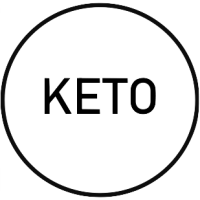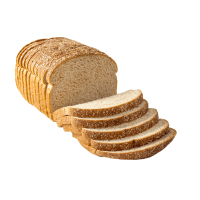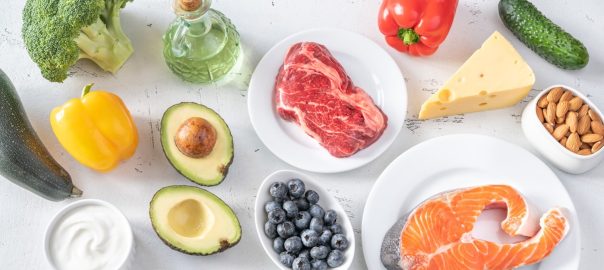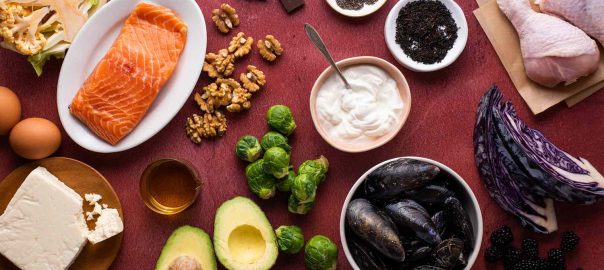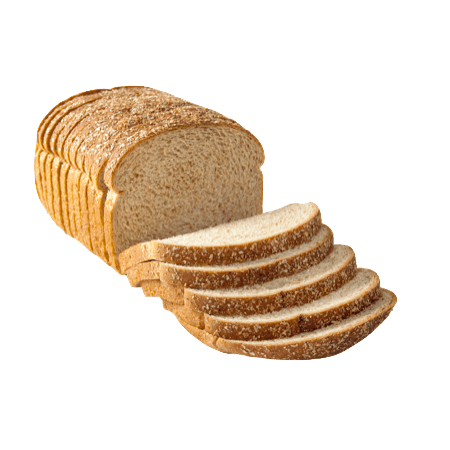Fermented Foods on Keto
Improve Gut Health While Staying Low Carb
The keto diet has gained massive popularity for its ability to support weight loss, enhance mental clarity, and promote overall health by shifting the body’s metabolism into fat-burning mode. While keto focuses primarily on macronutrient ratios, another crucial aspect of health that is often overlooked is gut health. Enter fermented foods – nutrient-packed, probiotic-rich staples that can supercharge your keto lifestyle.
Below, we’ll explore the incredible health benefits of fermented foods, discuss the best low carb fermented options, and provide practical tips for incorporating them into your keto meal plans. Plus, we’ll touch on DIY fermentation projects and the importance of balancing probiotic intake with carb restrictions.
What Are Fermented Foods?
Fermented foods are foods and beverages produced through controlled microbial growth and fermentation. During fermentation, microorganisms like bacteria, yeast, and moulds break down sugars and other compounds, creating unique flavours, textures, and, most importantly, probiotics – the beneficial bacteria that support your gut health.
Popular fermented foods include:
- Sauerkraut (fermented cabbage)
- Kimchi (spicy fermented vegetables)
- Kefir (fermented milk)
- Yogurt
- Kombucha (fermented tea)
- Pickles (fermented cucumbers)
The fermentation process enhances the nutritional profile of foods, often increasing their vitamin content, digestibility, and probiotic count, making them an excellent choice for overall health.
Learn more about the science of fermentation.
Health Benefits of Fermented Foods
Fermented foods have been consumed for centuries, and modern science has unveiled their remarkable health benefits, including:
- Enhanced Gut Health
Probiotics found in fermented foods help balance gut microbiota, promoting better digestion, nutrient absorption, and immunity. For keto dieters, this can reduce common side effects like constipation.
- Improved Digestion
Fermentation partially breaks down food components, making them easier to digest. This is particularly beneficial for individuals sensitive to lactose or complex carbohydrates.
- Increased Nutrient Availability
Fermentation can boost the bioavailability of certain nutrients, such as B vitamins and vitamin K2, which are vital for energy production and bone health.
- Support for Mental Health
The gut-brain axis highlights the connection between gut health and mood regulation. Probiotics in fermented foods can help reduce symptoms of anxiety and depression.
The Link Between Gut Health and Mental Health
The connection between gut health and mental health is a fascinating and rapidly evolving area of research, often referred to as the gut-brain axis. This bidirectional communication system links the gut and brain through a complex network of nerves, hormones, and immune signals. Central to this connection are the gut microbiota – trillions of microorganisms that reside in the digestive tract. These microbes play a significant role in producing neurotransmitters like serotonin, dopamine, and gamma-aminobutyric acid (GABA), which are critical for mood regulation and mental well-being. Remarkably, about 90% of serotonin, often called the “feel-good hormone”, is produced in the gut.1
Probiotics in fermented foods, such as sauerkraut, kimchi, and yogurt, help maintain a healthy balance of gut bacteria, which can positively influence mental health. Studies suggest that improving gut microbiota diversity can reduce symptoms of anxiety and depression by lowering inflammation and regulating stress responses. By incorporating fermented foods into your diet, especially on a ketogenic plan, you can support not only your digestive health but also enhance mental clarity and emotional resilience, making these foods a cornerstone of holistic well-being.
Learn more about the brain gut connection.
Best Low Carb Fermented Foods for Keto
While some fermented foods contain added sugar, there are many keto-friendly options that fit perfectly into a low carb lifestyle. Here are some of the best choices:
- Sauerkraut
Carb Content: ~1-2g of net carbs per ¼ cup
Sauerkraut is made from fermented cabbage and is rich in probiotics and vitamin C. Opt for unpasteurized varieties to ensure live cultures.
- Kimchi
Carb Content: ~2g of net carbs per ¼ cup
This spicy Korean staple features fermented vegetables like cabbage and radishes, flavoured with garlic, ginger, and chili.
- Pickles
Carb Content: ~1g of net carbs per spear (for fermented, not vinegar based pickles)
Fermented cucumbers are crunchy, tangy, and a great snack or burger topping.
- Kefir
Carb Content: ~2-4g of net carbs per ½ cup
This tangy fermented dairy drink is packed with probiotics and can be used in smoothies or as a base for creaming dressings. You can also drink it on its own! Make sure to choose an unsweetened kefir as many come flavoured and packed with sugar.
- Yogurt
Carb Content: ~3-5g of net carbs per ½ cup (Greek yogurt or full-fat varieties)
Full-fat, unsweetened yogurt provides probiotics, protein, and healthy fats. Like when selecting kefir, make sure to choose an unsweetened, unflavoured yogurt as many come full of hidden sugars.
- Coconut Yogurt
Carb Content: ~2-3g of net carbs per ½ cup
A dairy-free alternative that’s perfect for keto dieters who are lactose intolerant or vegan.
- Kombucha
Carb Content: ~2-3g of net carbs per ½ cup
This fizzy tea is refreshing and an excellent source of probiotics. However, make sure to look for low sugar varieties when shopping and be mindful of serving sizes due to the naturally occurring sugars in kombucha.
DIY Fermentation Projects
Making your own fermented foods at home can be a fun, cost-effective project that ensures your fermented snacks stay keto-friendly. Here are some fairly easy DIY fermentation recipes you can try if you’re interested in making them yourself!
Fermentation Safety
It is absolutely critical that you follow proper safety guidelines when fermenting foods to avoid contamination and the risk of botulism. Just like canning, it’s very important to follow each step to ensure the food stays safe outside of the refrigerator. Always use clean equipment, follow trusted recipes, and monitor your ferments closely.
Learn more about safe fermentation practices here.
Incorporating Fermented Foods into Keto Meal Plans
Fermented foods are versatile and can be easily added to meals or snacks to boost flavour and nutrition. Here are some easy ideas to get started!
Breakfast
- Add a dollop of sauerkraut or kimchi to your scrambled eggs or breakfast burritos.
- Top Greek yogurt with keto granola and a sprinkle of cinnamon.
Lunch
- Mix kimchi into cauliflower fried rice for a spicy kick.
- Pair fermented pickles with a keto-friendly sandwich or wrap.
Dinner
- Use kefir to marinate chicken for tender, flavourful meat.
- Add sauerkraut to a keto sausage skillet for a tangy twist.
Snacks
- Enjoy a handful of fermented pickles as a tangy snack.
- Sip on a small glass of low sugar kombucha for a refreshing drink when craving pop.
Potential Impact on Digestion and Gut Health
Probiotic-rich fermented foods can profoundly impact your digestive health. By enhancing your gut flora balance, these foods can help:
- Alleviate common keto side effects, such as bloating and constipation.
- Support nutrient absorption, ensuring that your body gets the most out of your meals.
- Strengthen the gut lining, reducing inflammation and supporting immune function.
Balancing Probiotic Intake with Keto Carb Restrictions
While fermented foods are generally low in carbs, it’s essential to monitor portion sizes and avoid sugar-laden options. Here’s how to stay within your carb limits:
- Read Labels – Look for terms like “no added sugars” or “unpasteurized”.
- Opt for Smaller Servings – Start with small portions to help gauge your tolerance and avoid any stomach upset.
- Pair Wisely – Incorporate fermented foods with high-fat, low carb dishes to help balance macros.
Tips for Introducing Fermented Foods Gradually
Probiotic-rich foods can sometimes cause digestive discomfort if introduced too quickly. Follow the below tips to ease fermented foods into your regular diet.
- Start Small – Begin with 1-2 tablespoons per day and gradually increase.
- Make Sure to Hydrate – Drinking plenty of water helps your body adapt to changes in gut bacteria without upset.
- Variety Matters – Rotate different types of fermented foods to diversify your gut microbiome.
- Consistency is Key – Incorporate fermented foods into your diet regularly rather than sporadically to help achieve the best results for your body.
Fermented Foods Are a Powerful Addition to Your Diet
Fermented foods are a powerful addition to the keto diet, offering a host of benefits for gut health, digestion, and your overall wellbeing. With numerous low carb options available out there, it’s easy to incorporate these nutrient-dense foods into your meals. Whether you choose to buy them or try your hand at making them yourself, the key is to enjoy fermented foods in moderation and pair them with other keto-friendly foods.
Ready to boost your gut health while staying in ketosis? Explore a variety of keto-friendly fermented foods and see which you like best today! The benefits are endless.
Low Carb Grocery is Your One-Stop Shop for Keto Staples
Shopping at Low Carb Grocery offers numerous benefits for individuals looking to maintain a low carb lifestyle. Our extensive selection of products caters to a variety of dietary preferences and restrictions, ensuring you can find the delicious and nutritious foods you love that fit into your diet.
Whether you’re looking for low carb bread, sugar-free sweets, or low carb breakfast cereal, Low Carb Grocery has you covered.
Our online store makes grocery shopping more convenient than ever. Enjoy browsing your favourite products in your pyjamas! We offer free, Canada-wide shipping on all orders over $99. Additionally, we offer competitive pricing and frequent promotions and sales to make shopping affordable and easy. Together, we want to make your diet feel inclusive, not restrictive, so you have a better chance of sticking to it and improving your health.
More Low Carb Lifestyle Articles
Top Snack Foods
Discover the ultimate guide to keto and low carb snacking! We’ve compiled our favourite snacks and sweets that are both delicious and diet friendly! From chocolatey treats to savoury bites, we’ve got something for everyone!
Zero Carb Foods
Maintaining a low carb diet can be challenging, but with the right foods, it doesn’t have to be. This article is packed with product recommendations to help you stay on course. Discover how to fully embrace a keto or low carb diet with delicious meals that satisfy every craving.
Is Going Low Carb Healthy?
Interested in making the switch to a low carb diet but worried about adverse health effects? Learn more about the role that carbs play in your diet and how they affect your overall health and fitness goals to determine if a low carb diet is the right choice for you.
30 Low Carb Foods
Looking for delicious and satisfying meals that fit into your low carb lifestyle? Explore our list of 30 healthy low carb foods, including pantry staples and specialty products.
Getting Started with Keto
The keto diet, as it is commonly known, has surged in popularity due to the dramatic results that people have experienced. However, there remains some skepticism about how it works from those who are new to high-fat and high-protein eating. Learn more about this diet here.
© 2025 Low Carb Grocery. All Rights Reserved.









